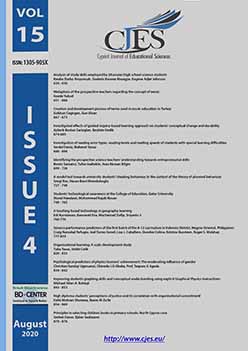Science performance predictors of the first batch of the K-12 curriculum in Valencia District, Negros Oriental, Philippines
Science performance predictors of the first batch of the K-12 curriculum in Valencia District, Negros Oriental, Philippines
Author(s): Craig N. Refugio, Joel T. Genel, Dundee G. Colina, Kristine N. Busmion, Roger S. MalahaySubject(s): Education
Published by: Birlesik Dunya Yenilik Arastirma ve Yayincilik Merkezi
Keywords: Science performance; predictors; k-12 curriculum;
Summary/Abstract: The authors designed and conducted this study using the predictive analytics to determine the different science performance predictors of the first batch of K to 12 curriculum in Valencia District, Valencia, Negros Oriental. The authors had chosen three kinds of predictors namely;student-related predictors, teacher-related predictors, and school-related predictors. For the student-related predictors, parents’ educational attainment, parents’ occupation, family income, IQ level, learning styles and previous grade level science performance. The teacher-related predictors include teachers’ educational qualifications, length of science teaching experience, relevant science trainings and seminars attended, and exposure to access internet connection. On the other hand, the school-related predictors include the type of school,class size, ratio of science books to number of students and conformity of science laboratory equipment and apparatus to K to 12 standards.The authors had randomly chosen 311 student-respondents and 8 teacher-respondents coming from four public and two private secondary schools of Valencia District. Questionnaires that were tested on its reliability and validity were used in this study. The collected data were then interpreted and analysed using appropriate statistical tools. Students’ previous science performance, parents’ educational attainment,parents’ occupation, intelligence quotient (IQ), teachers’ educational qualification, number of years in science teaching experience, levels and numbers of seminars and trainings attended and teachers’ internet access significantly predict the level of students’ performance in science; thus, they are considered as predictors. However, learning styles, class size, parents’ occupation, type of school, student-book ratio,and conformity of science equipment and apparatus cannot predict students’ level of performance.
Journal: Kıbrıslı Eğitim Bilimleri Dergisi
- Issue Year: 15/2020
- Issue No: 4
- Page Range: 777-821
- Page Count: 45
- Language: English

